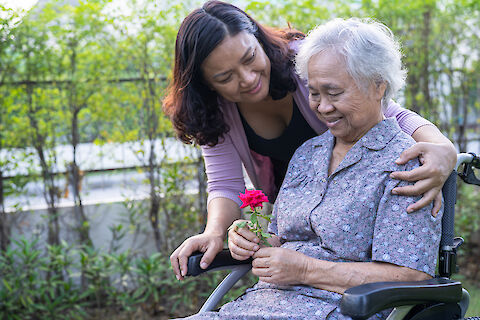
Depression among seniors is an important topic. Still, it often goes undiscussed. The common myths and misconceptions surrounding this issue tend to overshadow the reality, making it more crucial to shed light on it.
This blog will give you clues to help you identify the often-overlooked signs of depression in seniors.
Understanding Depression in Seniors
Depression, a serious mental health condition, can affect anyone, regardless of age. However, the issue takes on unique characteristics when it comes to seniors. Unfortunately, many people believe that feeling 'down' is just a normal part of aging—a harmful myth that can prevent seniors from getting the help they need. In reality, depression is not a normal part of aging and requires immediate attention and action.
Moreover, symptoms of depression in seniors may not be the same as those in younger people. While younger individuals may express feelings of sadness, seniors suffering from depression may display symptoms that are less obvious, such as persistent fatigue, loss of appetite, or a lack of interest in previously enjoyed activities.
Recognizing Signs of Depression in Seniors
As a caregiver, being aware of these often-overlooked signs is important. Changes in sleep patterns, appetite, or general demeanor can be indicative of a deeper issue. If your loved one becomes increasingly withdrawn, seems unusually preoccupied with death, or starts neglecting personal care, these changes should not be ignored.
How to Help a Senior with Depression
If you suspect that a senior is experiencing depression, don't hesitate to seek professional help. Although it might be difficult to start this conversation, it's crucial to express your concerns openly and honestly.
Encourage your loved one to speak with a healthcare provider, who can offer a proper diagnosis and treatment plan. As a caregiver, your role extends beyond mere detection. It also includes providing emotional support, ensuring medical appointments are kept, and fostering a positive and understanding environment.
Treatment Options for Depression in Seniors
There's a variety of treatment options available for seniors dealing with depression. These could range from talk therapy and medication to lifestyle modifications, such as regular physical activity and a healthy diet.
Recognize that each individual is unique, and what works for one may not work for another. Seniors should always talk to their doctor about a healthy exercise routine for them and what their limitations are.
Get Support and Encouragement From Senior Helpers
Understanding and addressing depression in seniors is a pressing issue that demands our attention and care. Recognizing the signs early and seeking professional help can significantly improve the quality of life for our loved ones.
If you're in Baltimore, Annapolis, Columbia, Baltimore County, or Howard County, your journey to providing effective care for the seniors in your life can start with a simple conversation with us at Senior Helpers Baltimore. Contact us to learn more about our senior care services.